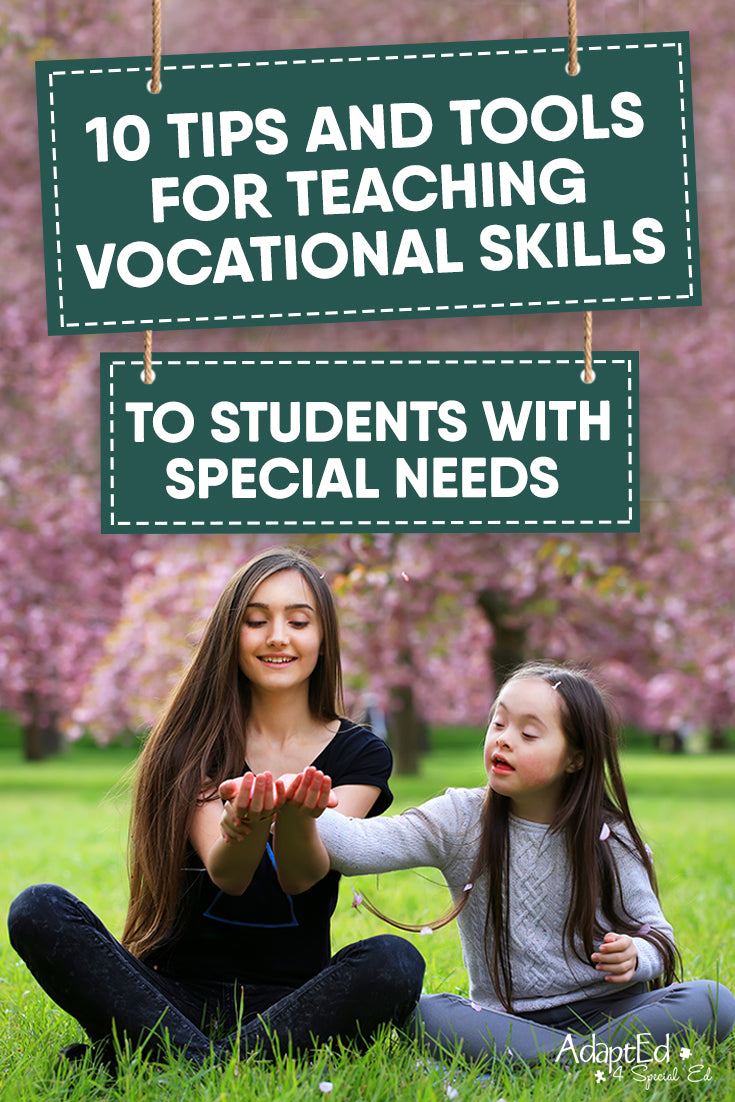Are you a special education instructor?
Those who specialize in educating students with special needs know the value of using techniques and tools that help their children excel. Throughout their school years, these people often receive accommodations meant to help them learn and grow.
But what happens as they grow older? How do you prepare a person with special needs for life beyond the classroom?
This is where vocational skills come in. Helping your students navigate the world of getting and holding a job, making money, and establishing a career they love constitutes both a responsibility and an honor. The information you give these young people may shape the rest of their lives.
But how do you ensure you give them the best information?
Read 10 tips below!
1. Encourage Them to Follow Their Passions and Skills
Too often, people hyper focus on what students with special needs can't do. This paints them in an incredibly negative light and contributes to a narrative which might cause them to not believe in themselves.
In reality, students with special needs are often highly talented and dynamic people. Like other children, they have personal goals, interests, and life dreams. Their particular skill sets and interests likely fit a certain vocation perfectly.
So, as an instructor, help them explore what they want to do. Get to know your students on a personal level, ask them about their dreams, and observe their talents. Give them different options based on this information and assist them in pursuing the one they want.
2. Familiarize Yourself with Many Potential Fields
Get comfortable talking about a variety of different fields with your students, and do your best to answer their questions.
Your students will likely have a broad range of interests. If you want to know which fields you need to learn more about, ask your students to inform you of a few they would like to pursue themselves. Then, do some research on what this type of professional's typical day looks like, the qualifications needed, and how to help your student get there.
3. Help Them Navigate Professional Expectations
Of course, every job will have different expectations, so it's impossible for you to prepare your students for all of them.
Yet, you can help them prepare for some, such as showing up on time, dressing professionally, sticking to deadlines, and communicating with managers or supervisors. Demonstrate to them why these things are important to employers, and teach them how to ask for help on a project if needed.
If you need help teaching your students how to prepare for a job, check out these books.
4. Help Them with Interviews
Most employers want to interview potential employees before giving them the job.
This is a great chance for your students to showcase their talents and prove why they're the perfect hire. Still, many people find interviews to be daunting, and your students may like some additional help.
To accomplish this effectively, hold mock interviews with your students. Show them how to research the companies they want to work for beforehand and prepare answers to common interview questions. Then, encourage them to dress well and show up to the mock interview ready to give their answers.
5. Teach Them Social Skills
Your students may have a variety of social skills, so not all children will need this equally.
Yet, social skills are often key, unsung features of jobs. For instance, people who work in retail stores or restaurants need to interact well with clients and be able to fulfill a variety of requests. People in all jobs need to know how to work well with their coworkers.
Make sure you focus on teaching both the class as a whole and individual students. The more your instruction is specifically tailored to a student, the more likely they are to blossom in their career.
If you want resources that will help you tailor your instruction to your students, take a look at these publications.
6. Teach Them How to Structure a Routine Around a Job
If you have students who struggle with time management and structuring their routines around their responsibilities, walk them through how to organize their days around a job.
Talk realistically of what they'll need to do before they go to work, such as wake up, get dressed, and eat breakfast. Then, talk to them about making sure they have transportation to and from their work and making sure they know when they're expected to be there.
7. Review Basic Financial Skills
When people begin earning money, they need to know how to manage it.
Help your students understand the value of money and discuss financial goals with them. Then, go over basic spending and saving skills.
8. Teach Them Daily Living Skills
In order to succeed well at work, people need to know how to take good care of themselves in their personal lives. For all people, having a healthy work-life balance helps them become more productive at work and better employees.
So, when shepherding your students through their career choices, emphasize the need for a combination of work and self-care.
9. Demonstrate How to Ask for Reasonable Accommodations
Under the Americans with Disabilities Act (ADA), Americans who have disabilities are entitled to reasonable accommodations that help them complete their work. Because of this, many employers will ask whether or not job applicants have a disability.
Work through talking to your students about reasonable accommodations with their employer. Emphasize the fact that they do not need to disclose their disability if they don't want to, but that they might get better accommodations if they do.
10. Involve the Parents in Their Vocational Skills Journey
Parents or legal guardians can be largely instrumental in their child's path toward vocational success.
If you have regular parent-teacher meetings, go over what you're working on with their child in those meetings. In addition, dialogue with them about how they can help prepare their child. This will give the student the best chance at success.
Ready to Help Your Students Succeed?
If you are trying to help special needs students succeed at their vocational skills and practical skills, we hope this guide helped.
When it comes to career counseling for students with special needs, teachers sometimes need to take different techniques. When you follow these tips, you increase the likelihood that your students will succeed.
Want to further help your students? Check out our products today!



